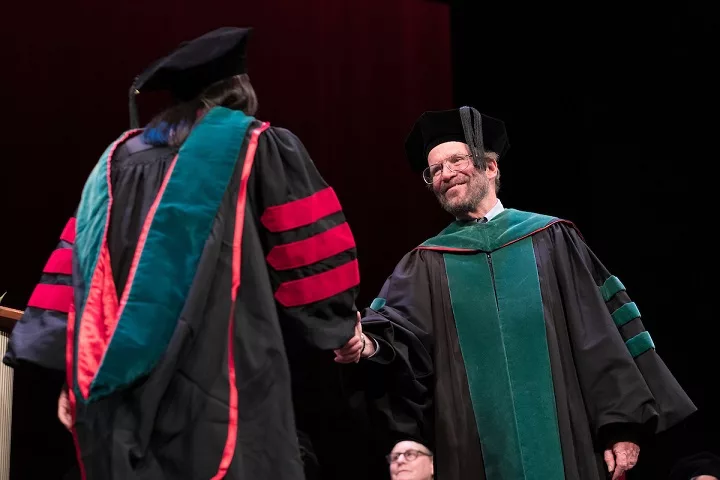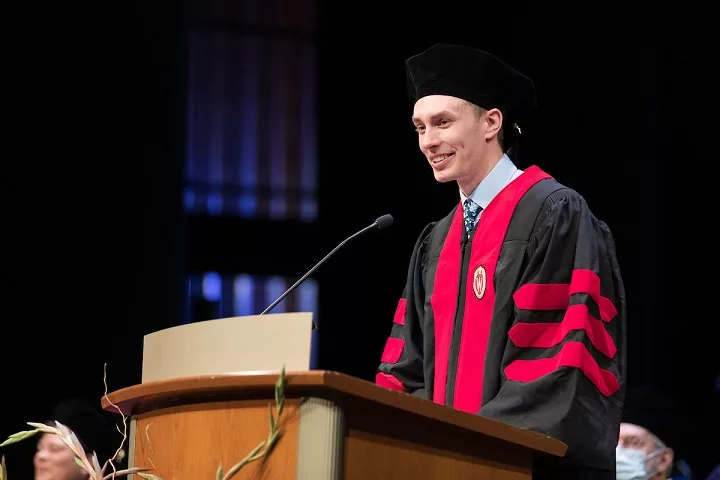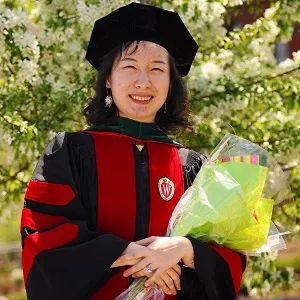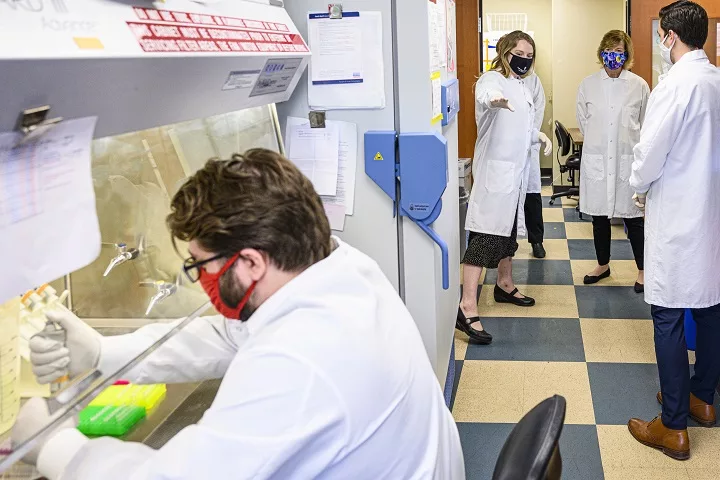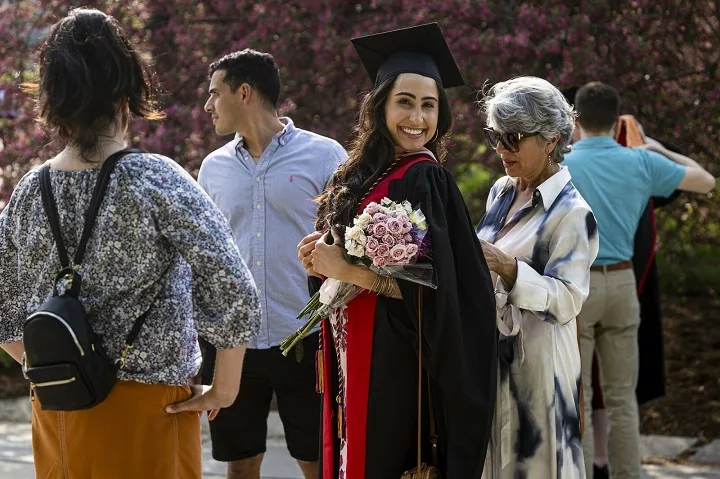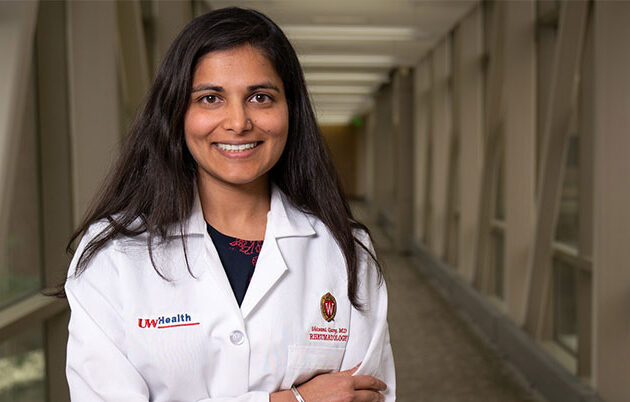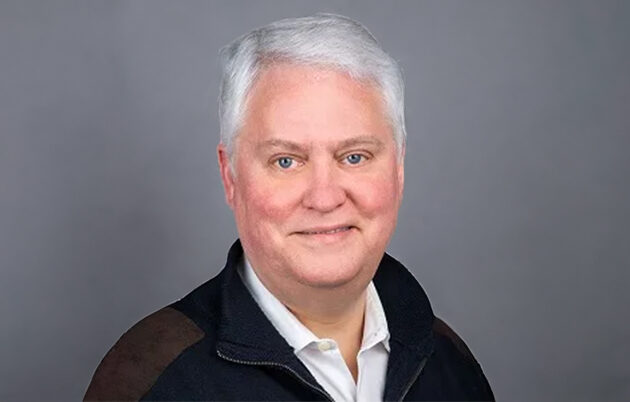Wendy Sun was one of the 173 medical students listening to the remarks and marking the completion of their MD studies. Her parents immigrated from China when she was three years old and initially settled in Wauwatosa, Wisconsin, and later moved to Gainesville, Florida and Fargo, North Dakota. Sun earned her bachelor’s degree at UW–Madison and then worked for two years as an autism behavioral therapist, pediatrics research coordinator, and emergency department scribe before starting medical school.
While pursuing her degree, Sun drew on her personal experiences to establish a disability advocacy group that builds community among students, facilitating discussion of ways to address mental and physical health and to advocate for disability rights. She also engaged university leaders with her ideas about a disability cultural center. Sun asserts that it is valuable for disabled patients and future physicians to see themselves represented in the health professions.
“I believe it is important for medical students to learn how to work with patients with disabilities and their families, as well as for us to learn how to work with other health care professionals with disabilities,” she said. “To be able to form that connection is vital to care.”
Medical students learn to care for rural and urban communities, and to integrate research and medicine
In the Doctor of Medicine program, students may choose training tracks to delve deeper into specific areas. One option is to complete additional coursework and a capstone project to earn a Path of Distinction. Fifty-eight students in the 2022 class graduated with a Path of Distinction in Public Health or Path of Distinction in Research.
Two other programs focus on caring for rural or urban populations, respectively. This year, 24 students graduated from the Wisconsin Academy for Rural Medicine, called WARM, and 17 from the Training in Urban Medicine and Public Health program, called TRIUMPH. Dual degrees are also a popular option. The class of 2022 includes four students who completed an MD and Master of Public Health (MPH) and seven who earned an MD and PhD in the school’s Medical Scientist Training Program (MSTP), which involves completing both degrees over approximately eight years. The goal of MSTP is to educate physician-scientists who will make significant impacts on human health.
MSTP graduate Katarina Braun, MD, PhD, was attracted to the program’s integrated training in scientific research and clinical medicine. Her research took an unexpected turn in 2020 as the novel coronavirus swept across the globe and made its way to the United States and Wisconsin. Braun found herself well-positioned to help in the response to COVID-19, given her graduate work focused on other respiratory viruses while studying in the laboratory of Tom Friedrich, PhD, a virologist and professor in the School of Veterinary Medicine.
With her experience in viral sequencing and bioinformatic analysis of large datasets, Braun processed the sample corresponding to the first confirmed case of SARS-CoV-2 in Wisconsin. Through a partnership beginning in 2020 that involved the Friedrich laboratory and the laboratory of David O’Connor, professor of pathology and laboratory medicine, Braun continued to conduct large-scale SARS-CoV-2 viral sequencing and analysis of thousands of samples from infected individuals in Wisconsin. The goal of this work, described in a February 2021 article, was to keep watch for arrival of virus variants that are more efficient at infecting people or have mutations that render vaccines and treatments less effective.
“Far and away, I am most proud of my research on SARS-CoV-2 in the state of Wisconsin and, in particular, the impact of this work on public health recommendations,” she said. “We also summarized findings and submitted papers for publication in scientific journals. I led the discussions of this work with Senator Tammy Baldwin, UW–Madison Chancellor Rebecca Blank, and Dean Golden at their site visit in April of 2021, which helped inform Senator Baldwin’s Tracking COVID-19 Variants Act.”
